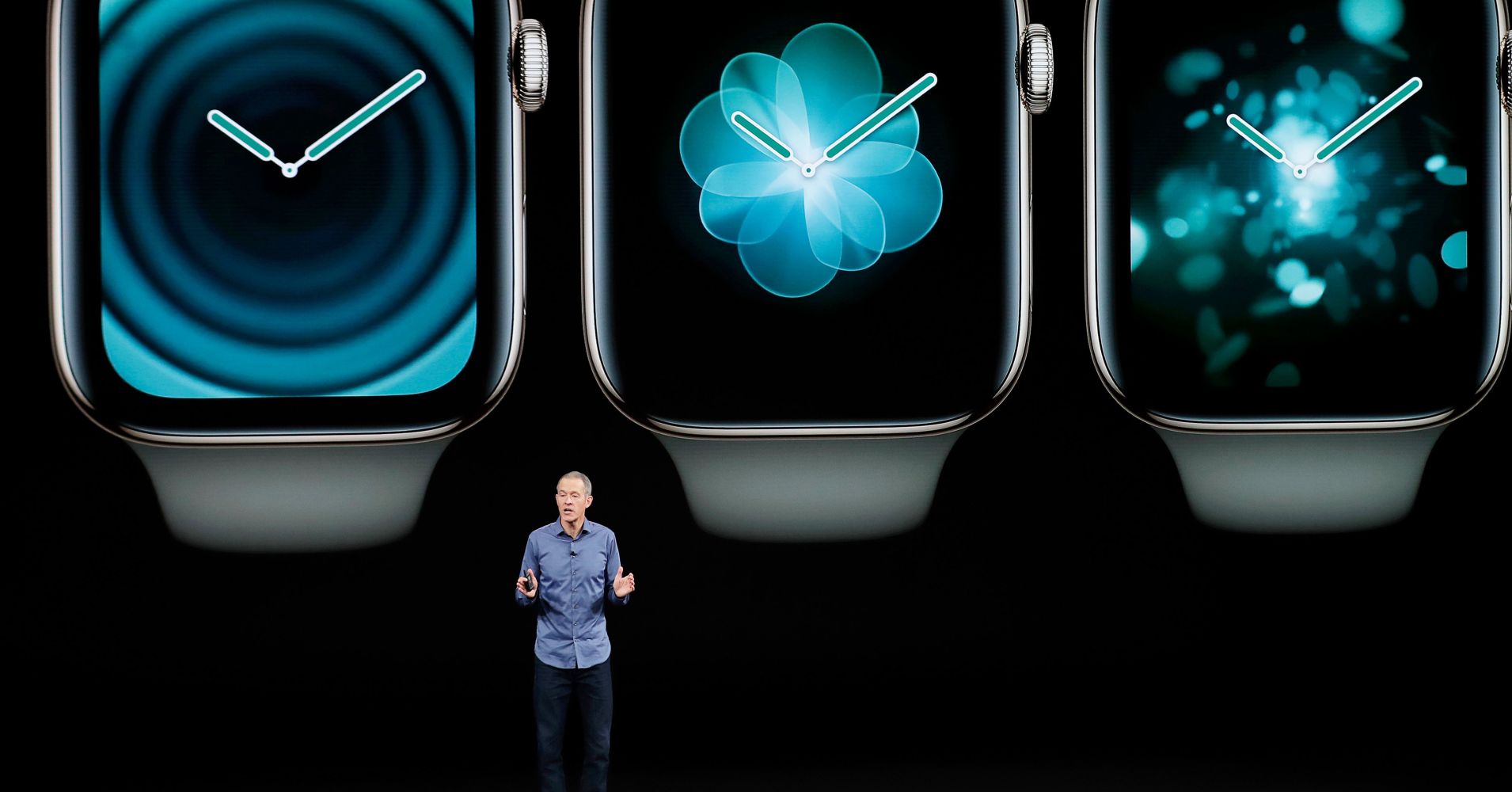
Your Apple Watch is getting a medical upgrade.
Apple announced on Wednesday that the next version of its watch will have an electrocardiogram sensor, which means users will be able to monitor heart activity and identify some potential abnormalities and health issues.
What does that mean and why should you care?
If you’re not in the medical field, the announcement may have left you with more questions than answers. As your resident health-technology reporter, I’ll do my best to clear a few things up.
An electrocardiogram is shortened to an ECG or EKG. You can use the terms interchangeably. At CNBC, we use EKG.
The Apple Watch has always had an optical sensor to monitor heart rate called a PPG, which is short for photoplethysmogram. Heart rate gives you a measurement of beats per minute. But an EKG measures the electrical activity of the heartbeat — think of it as the rhythm, rather than the rate.
In recent years, companies like AliveCor and iRhythm have been developing portable single-lead EKG devices, which can be more easily used by consumers in the home. They are typically smaller and easier to use than the standard test you’d get in the hospital, which is a 12-lead EKG. Apple’s sensor is similar to a single-lead EKG.
Not to this extent. The Apple Watch heart rate sensor was alerting users to some potential problems. In the past few years, the company made the decision to formally use and understand that data by partnering with Stanford University.
That study with Stanford enrolled a general population of Apple Watch users to find out whether the device could detect a kind of arrhythmia called Atrial Fibrillation, which is the leading cause of stroke. It used the watch’s heart rate sensor that flashes green LED lights hundreds of times per second, and also shined a light to detect blood flow in the wrist. Algorithms were then used to determine heart rhythms.
But an EKG is more precise. And now with the Apple Watch Series 4, Apple can read the heart’s electrical signals without relying on third-party hardware or software.
There’s a difference between FDA clearance and approval. Apple has the former, not the latter. Simply put, cleared medical devices are defined by regulators as those that are determined to be similar to another legally marketed device. The FDA still reviews the submission, called a 510(k), before it provides clearance. A pre-market approval (PMA) is a more rigorous process and applies to higher risk medical devices. The FDA has a technical definition here.
The FDA still required that Apple submit data to show that its device is sufficiently accurate and sensitive. A statement from Wednesday reads: “The FDA worked closely with the company as they developed and tested these software products, which may help millions of users identify health concerns more quickly.”
Apple received a de novo clearance, meaning first of its kind, which typically take a bit longer than the usual 510(k) process.
AliveCor, a venture-backed company in Silicon Valley, has made the claim of being the first medical-grade EKG that’s available for consumers to buy. Those who follow the space were quick to point that out when Apple COO Jeff Williams announced on stage that Apple had a first-ever clearance for direct-to-consumer EKG monitoring.
But there’s a subtle difference.
Once a consumer buys an AliveCor device, they take an EKG reading (via a smartphone attachment or their Apple Watch band), and wait until a doctor unlocks it within 24 hours to get an initial reading on the app.
Apple designed its system differently. The FDA cleared the company to provide these readings to consumers right away, allowing users to share the results with a physician if they choose.
Apple has stressed that its business model does not support selling your personal health information to third parties, including advertisers. While the company didn’t spend a lot of time talking about privacy as it relates to the new sensor, it has made clear in the past that it will not store your health data in the cloud.
Apple hasn’t said much other than later this year. Note that it’s only cleared in the U.S.
You can store all the data and reports on your iPhone’s Health app. From there, you can download it and share it with a doctor.
Yes. The EKG will not work if you’re moving around, and the Apple Watch will prompt you to remain at rest.
No. Apple is careful with its language in referring to its device as an “intelligent health guardian.” Users can take an EKG, but if there’s any kind of abnormality, Apple recommends that you see a doctor.
Over time, the company will need to show that it’s not producing a lot of false positives, sending anxious customers to the doctor or emergency room unnecessarily.
Have additional questions? Tweet me at @chrissyfarr or @CNBCtech.

